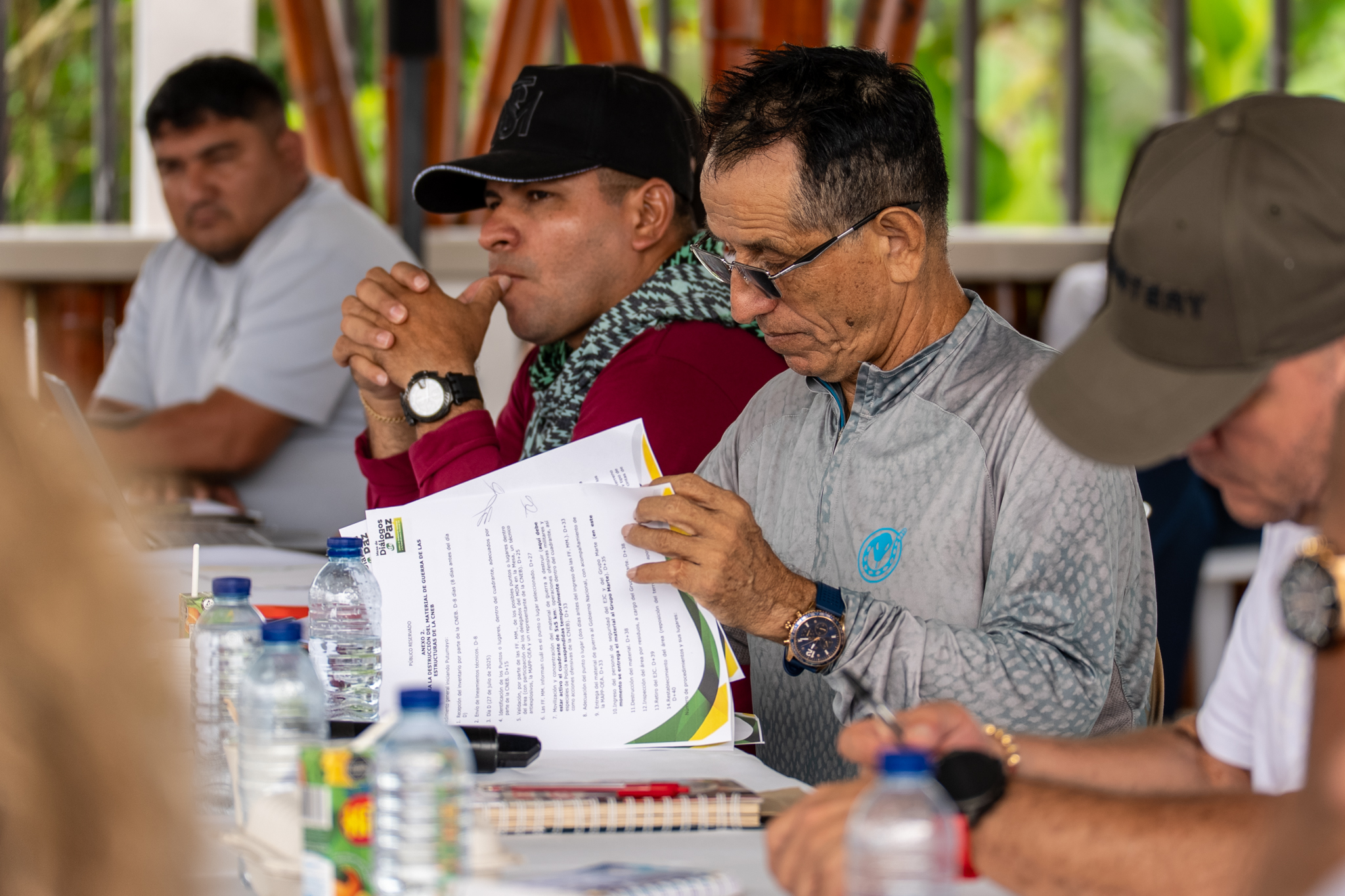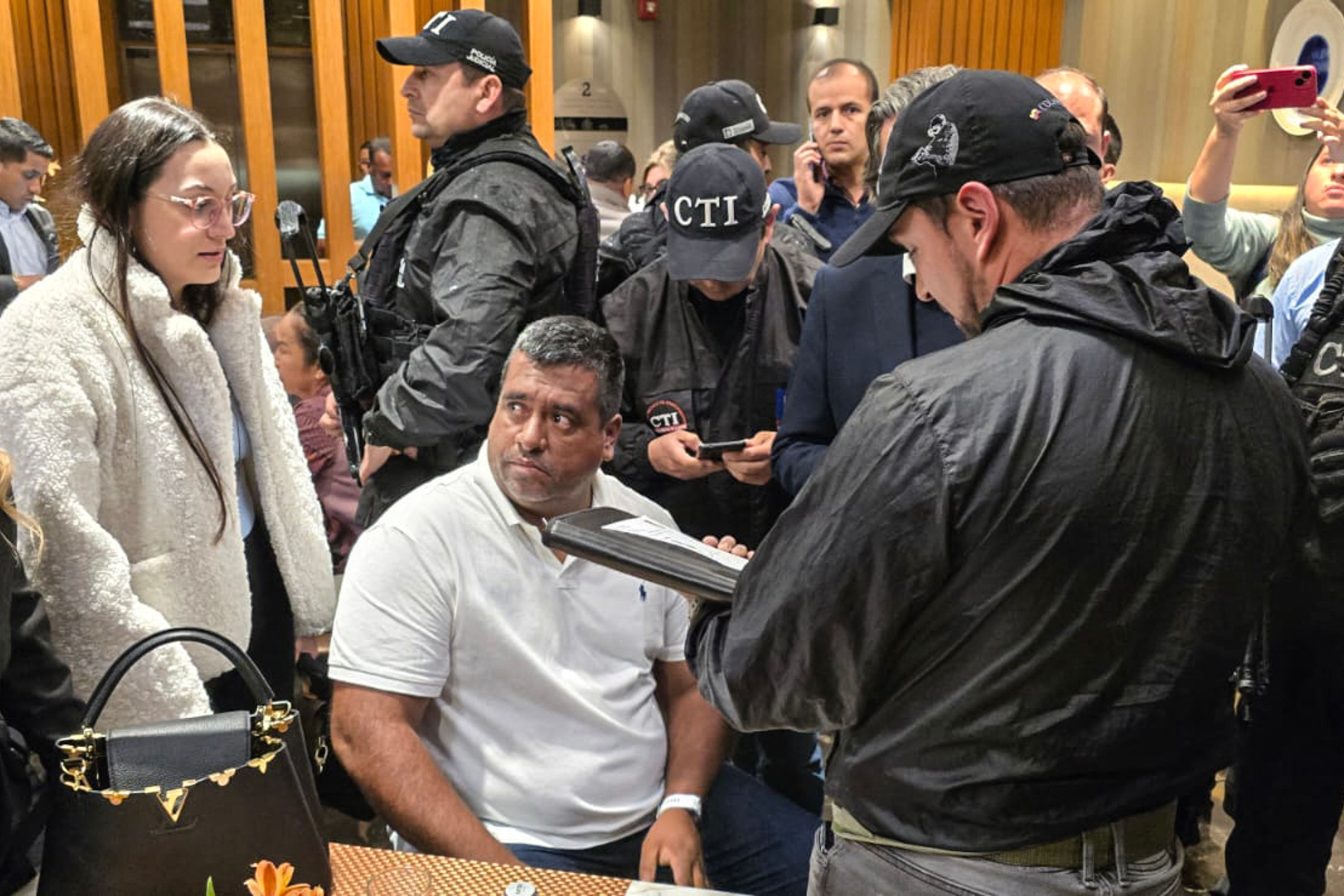Novoa on soldiers burned: 'If the Border Commandos participated, the government's response can only be to clear the table.'

Armando Novoa , head of the government delegation in the negotiations with the National Coordinator of the Bolivarian Army (CNEB) - a structure that brings together the Border Commands and the Pacific Guerrilla Coordinator -, rejected this Thursday the attack against two soldiers who were doused with gasoline and set on fire while participating in an operation to destroy a cocaine laboratory in Putumayo . In an interview with EL TIEMPO, the negotiator did not rule out the possibility of the government leaving the negotiations after the attack and insisted that the armed group must make a public statement.
What is the status of the negotiations with them? We agreed on a protocol with them for the creation of temporary relocation zones. The military is there, Colonel Jaime Ariza is there, and the legal team is there, and we've made quite good progress with that. What happened on Wednesday strikes me as not only absolutely reprehensible, but counterproductive to what we're doing at the table.
How does this leave the table? The Border Commandos aren't charitable nuns; they're a delinquent and criminal group with a very complex composition: there are former members of the FARC, former professional soldiers, and members of what used to be self-defense forces. Consequently, their political principles and codes of action for the war aren't very credible. But it's up to us to evaluate the progress we've made at the meeting in this regard. We've made great progress at the meeting, which we're about to finalize: the destruction of war material and their willingness to expedite the relocation of 150 people, 75 in Nariño and 75 in Putumayo, in the month of October. People will enter there unarmed and without uniforms. We hope that very soon, after this first step, there will be a second step to group a larger number of their groups in these mobilization zones.

Alias Walter Mendoza, spokesman for the armed group. Photo: Office of the Peace Commissioner
Of course, because they're the ones in Putumayo and Nariño. In Putumayo, that area will probably be established in the Guamuez Valley region.
What did they tell you about the attack? To make this statement, I communicated via WhatsApp with the Minister of Defense (Pedro Sánchez) and the Ombudsman (Iris Marín). This morning I spoke with the governor (Jhon Gabriel Molina), and he shared the details with me, but it's up to us to be very careful so that it's not interpreted as if we're taking a position of protecting the group.
However, the information must be very specific, because if the Border Commandos participated in that action, I believe the government's response could hardly be anything other than to walk away from the proceedings; not suspend them, as in other cases. So we have to carefully weigh the progress, this episode, and the group's level of responsibility. Therefore, in our statement, which some have described as lukewarm, we say that the first thing, before anything else, is for them to say whether they participated or not, and if they didn't, to condemn it completely.
Did you speak with alias Walter Mendoza, head of the CNEB delegation? And what did they say to you? They have not participated, which is why we are asking them for a public statement.
And have you spoken with alias Araña, their main leader? Araña is in La Picota, but we've communicated through a facilitator, and he categorically denies that the Commandos were involved, among other reasons because that would be suicidal for him (he's in prison and has an extradition order against him that was stopped in the middle of negotiations). That's why we have to be careful. What happened with that attack on the 11 soldiers in Ecuador when the Border Commandos were pointed out? The Ecuadorian military itself, weeks later, said that the one who attacked the soldiers was a group based in that country, called Los Lobos, which has an alliance here in Colombia with some of these groups. So we have to have a clear, upfront, and rebuttal response and weigh this up because, in the face of these advances, we have to assess whether the best thing for the government and society is to say, "Let's end this and put an end to what, along with the Southern Communal Workers' Commissions, are the two roundtables where the most advanced processes are."
But episodes like this reinforce the idea that the 'total peace' policy didn't work… It's also true that opinions that the current government's total peace policy is a complete failure are being served on a silver platter. I say it's a failure, but not at all tables. Some people want to characterize it that way, but others don't. Those who fall into the negative category are ours, because in Nariño, the communities they exploit have also detained soldiers, although they immediately handed them over to the Red Cross. These are two very contradictory behaviors that don't align with what one might reasonably think of their position.

Geovany Andrés Rojas, alias Araña, leader of the Border Commandos. Photo: AFP
In Putumayo, more than 2,500 farmers have already signed agreements with the Crop Substitution Directorate to implement voluntary eradication. This would not have been possible without the group's respect for these agreements. In previous cases, these agreements have partly failed because the armed group attacks them. In this case, they haven't. In fact, we have already identified four municipalities where they would participate in this process.
What is the health status of the soldiers? One is a professional soldier and the other is a lieutenant. One of the two is in serious condition from the burns he received; the other, although not in a similarly serious condition, did suffer several significant burns.
CAMILO A. CASTILLOPolitical EditorX: (@camiloandres894)
eltiempo





